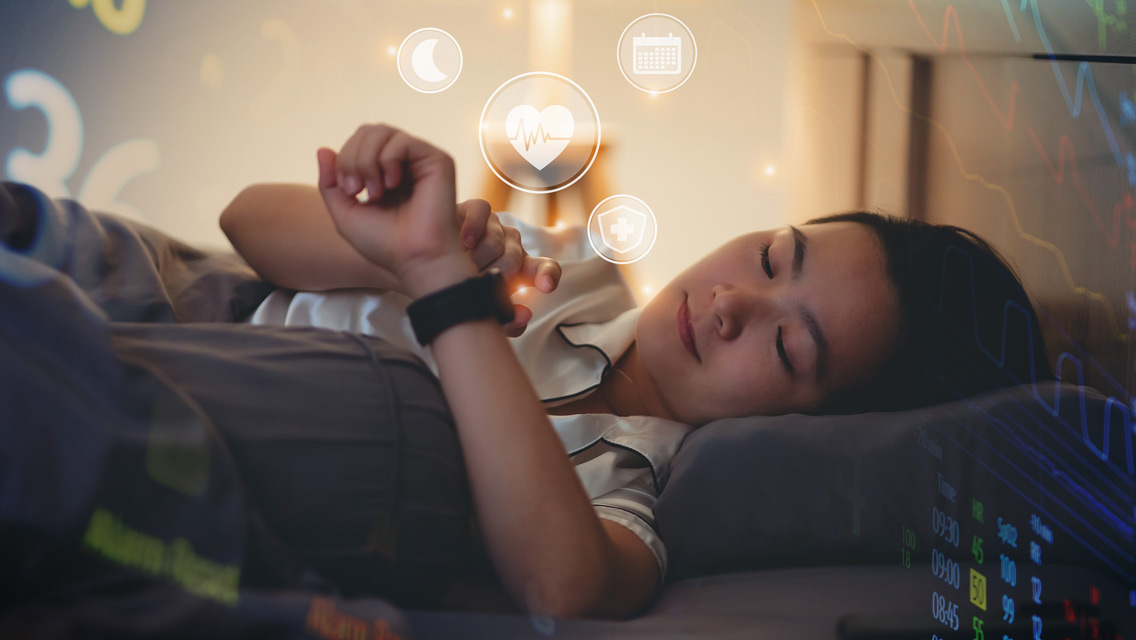Our environments drive our behavior in ways big and small. Some AI advocates believe we can use it to design our environments to steer us toward healthy choices.
“I think AI will fuel an intersection of industries that create healthier homes, work environments, and health-motivating spaces,” says Pilar Gerasimo, the founding editor of Experience Life.
Some of this is already under way. Smart-lighting systems can adjust throughout the day to support circadian rhythms, improve sleep quality, and enhance focus and productivity. Apps may offer recipes based on your health goals or even the contents of your AI-connected fridge. Wearables set daily activity goals and ping you to suggest a stretch break.
In the future, these nudges could become even more adaptive, integrating with AI-powered home systems to adjust temperature, lighting, and soundscapes using real-time biometric feedback. AI tools could even suggest preventive actions before a migraine or anxiety attack escalates, based on subtle physiological cues. Algorithms might match people who share similar hobbies or interests, facilitating social connection and reducing loneliness.
“We still want human wisdom to rise
in the age of information —
perhaps more information than
we know what to do with.”
Meanwhile, all this integration of AI into our environments raises questions about the balance between external guidance and personal agency. Although it can be appealing to outsource some decision-making, the convenience of AI-driven health nudges may come at a cost. “We don’t want to be completely manipulated by external agents,” says Minneapolis-based futurist Cecily Sommers. “We want to cultivate our own inner agency for the choices we make.”
Self-direction is like a muscle: It weakens without regular use. Recent research from Carnegie Mellon University and Microsoft found that the more confidence people feel in AI, the less likely they are to engage their critical thinking skills as they use AI programs. This is especially concerning given that AI can make mistakes, mislead, and manufacture incorrect information that it presents as fact, known as “hallucinating.”
“We still want human wisdom to rise in the age of information — perhaps more information than we know what to do with,” Sommers says. “If we’re not discerning, we won’t know the difference between what’s valuable and what’s not.”
AI and Your Health
Wondering how artificial intelligence might shape the future of health? Experts share their predictions and hopes for — as well as their questions and concerns about — how AI might influence healthcare and our collective well-being in the coming years at “How AI Is Changing Health and Fitness,” from which this article was excerpted.





This Post Has 0 Comments